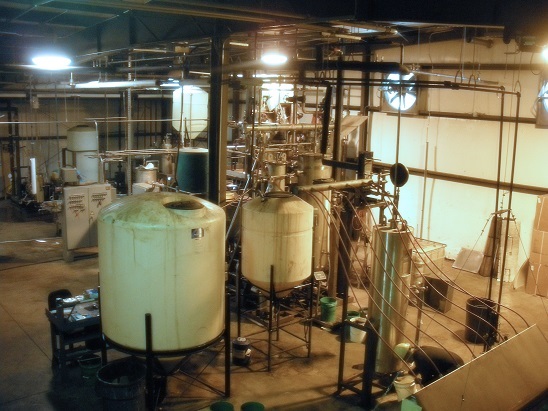American Science and Technology Corp. is scaling up its Wausau, Wisconsin-based pilot plant to precommercialization scale. Baisch Engineering was chosen to outline the scale up of the biorefinery pilot plant from its present generation limit of 200 pounds of lignocellulosic biomass for every day to 2 tons for every day.
“Baisch Engineering is an entrenched organization with impressive involvement in outline and building biorefineries, for the most part for paper commercial enterprises,” said Ali Manesh, AST president and CEO.
“Baisch Engineering has an accomplished group of designers who will give the specialized aptitude that we have to choose the right supplies and materials for our current scale-up undertaking.”
AST uses its biorefinery pilot plant offices to create a protected Organosolv methodology to change over lignocellulosic biomass into fermentable C6 sugars, exceedingly refined consumable sugar, unadulterated lignin, fantastic mash and natural solvents. These have been transitional items for supply chains delivering biochemicals, plastics, biofuels and nutritious supplements for nourishment.
Amid the previous five years AST has refined the Organosolv pulping process and gave innovative work administrations to organizations. The expanding development of the Organosolv engineering and the way of the innovative work request, from confirmation of idea to financial feasibility investigation, has obliged the improvement of a precommercialization plant, as per Manesh.
The Organosolv methodology authorized and utilized by AST was initially created and licensed by two researchers at the University of Wisconsin, Stevens Point, where the Cellulose Pilot and Processing Laboratory dwells.
AST’s pilot plant is a crucial piece of the CPPL, which incorporates offices for biomass characterization and investigation, a biotechnology lab and a maturation scale-up office went for making cutting edge biorefinery advances.
“Throughout the years, by utilizing its lab and pilot plant, AST has picked up significant learning and enhanced the procedure further, bringing about a few patent pending applications of its own,” Manesh said.
Manesh includes that a spinoff organization entitled Refined Bioproducts LLC was made by parts of the exploration gathering to investigate the advertising and worth chain of the items from these licensed techniques. RBP is right now arranging with AST to market their fractionation items.
The Organosolv process, as characterized by its licenses, utilizes butanol as a natural dissolvable to break up and expel lignin from lignocellulosic materials and produce mash that can either be utilized as business mash for paper items or might be hydrolyzed to sugar for aging to items like biofuels or biochemicals.
The procedure likewise creates different natural materials, for example, esters, furans and ethers, which could be differentiated and sold as repercussions or utilized as natural solvents.
The lignocellulosic materials at present learned at AST incorporate softwood, hardwood, bark and straws from different plants, for example, corn, sweet sorghum and wheat, among a couple of others. The feedstocks supplying the biorefinery are given by AST clients or bought from nearby makers as woodchips, ranger service squanders or rural squanders.
In the long haul the organization would like to source accessible biomass inside a 100 mile sweep of the biorefinery.
The precommercialization scale up is the following venture forward in AST’s objective of building a vast scale biorefinery generation plant. AST has been looking to manufacture a group to support in this exertion.
The organization has collaborated with Jim Lunt as an engineering sending guide, Central Wisconsin Engineering as a development colleague and now Baisch Engineering as an outline expert accomplice. “AST will proceed with its exertion to discover and collaborate with different gatherings to fabricate the fantasy group equipped for building an extensive scale biorefinery,” Manesh said.
Right now UWSP and AST have allotted on the whole about $2 million for the supplies to construct the new precommercialization scale plant.
Monetary aid to the plant was honored to AST and UWSP for pretty nearly $2.8 million in November 2013, as a feature of a $22.5 million activity by the University of Wisconsin System organizations. The new pilot plant is planned to go ahead line in late 2015.
American Science And Technology Scale Up Utilizations Baisch Engineering

Comments are disabled.


